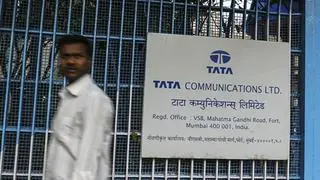Did you know that about a third of all barley produced in India is procured by beer makers?
The country produced an estimated 17.7 lakh tonnes of barley in 2017-18. Of this, while over 11 lakh tonnes (about 66 per cent) was purchased by feed companies and 2 lakh tonnes (about 10 per cent) was processed for human consumption, the rest went to malt companies and breweries, said Hetal Gandhi, Director, CRISIL Research.
The grain finds its applications in two broad verticals — animal-feed manufacturing and malt preparations.
Barley is the key ingredient for making malt — the raw material used to brew beer. The process involves soaking the grain in water for 25-26 hours. The germination process, which converts the barley starch into sugar (maltose), happens over 96 hours. It is then arrested through kiln-drying for another 40-42 hours. The resultant malt — 80 tonnes from every 100 tonnes of barley — is what the breweries ferment into alcohol by adding yeast.
About 10 years ago, the country’s barley production was at 12-13 lakh tonnes.
The entry of multi-national beer brands such as Kingfisher, Budweiser, Carlsberg and Corona in 2006/07 increased the demand for barley, and has since then driven barley production to the levels seen now. For 2018-019, the targeted production is 29 lakh tonnes.
In the key growing areas of Rajasthan, Uttar Pradesh, Madhya Pradesh, Haryana and Punjab, farmers are now actively engaging with corporate companies that produce malt/beer.
Initially, beer companies such as United Breweries and AB InBev used to import a significant amount of malt-grade barley.
This is because beer makers require barley with high carbohydrate (65-75 per cent) and low protein (9-11 per cent) content, as against the 60-65 per cent carbohydrate and 12-14 per cent protein content in the normal feed-grade grains available in India.
These companies have now slowly moved to large-scale domestic procurement to save on costs.
Switch
Traditionally, Indian barley farmers used to grow feed-quality grade instead of malt grade. But, over the past decade, this has changed with increasing domestic beer production and consumption.
A large number of domestic brewers as well as global firms now procure malt-grade barley directly from farmers. For instance, AB InBev, a Belgium-based brewing company with over 500 brands, procures nearly 50,000-60,000 tonnes a year of barley domestically.
Beer/malt companies opt for contract farming because commitments — from both ends — on the procurement price and quality are agreed upon upfront.
Sanjay Singh, who farms on a 10-acre land in Haryana, has been engaging with AB InBev for the past two years through contract farming. “They gave me seeds and educated me on good farm practices. My yield has gone up and my returns are also better than other farmers’,” he said.
Companies that engage in contract farming distribute seeds to farmers to ensure the output meets their requirements — each brand of beer has a specific quality/grade of barley used to produce malt.
For instance, AB InBev’s specific variety of barley, Voyager, has different malt quality parameters (defined to maintain uniformity in beer brewed across multiple geographies) than other Indian varieties. The Belgian firm has been engaging with farmers in States including Rajasthan and Haryana through its SmartBarley programme. “We buy barley from 3,600 farmers across four States,” said Diane Wauters, Director Procurement – Sustainability and Agricultural Development, AB InBe. “We provide crop buyback assurance to these farmers, provided the crop meets the quality specifications written in the contract, which are informed to the farmers at the time of seed sale. Our crop buyback price is pre-determined and disclosed to the farmers prior to the seed sale. Farmers are paid after their crop is checked for quality at our crop collection centres.”
Interacting with a few farmers who have engaged in contract farming with the company, we found that the firm regularly monitors the crop and ensures that farmers use the best practices on field. It provides farmers with updates on weather and other crop information through SMS.
Harvinder Singh, another farmer who cultivates barley via contract farming in Rajasthan, said: “The company provides market-related information on the crop, and helps us get farm inputs such as fertiliser, spray machines and pesticides through the Krishi (Vigyan) Kendra (agri information centre).”
Though contract farming provides wide benefits, there are a few loose ends that need to be tied. The draft contract farming law has a few gaps — it doesn’t mention the compensation to be given to a party if the other defaults, and the recourse for the parties involved and the penalties to be paid in case of violations.








Comments
Comments have to be in English, and in full sentences. They cannot be abusive or personal. Please abide by our community guidelines for posting your comments.
We have migrated to a new commenting platform. If you are already a registered user of TheHindu Businessline and logged in, you may continue to engage with our articles. If you do not have an account please register and login to post comments. Users can access their older comments by logging into their accounts on Vuukle.